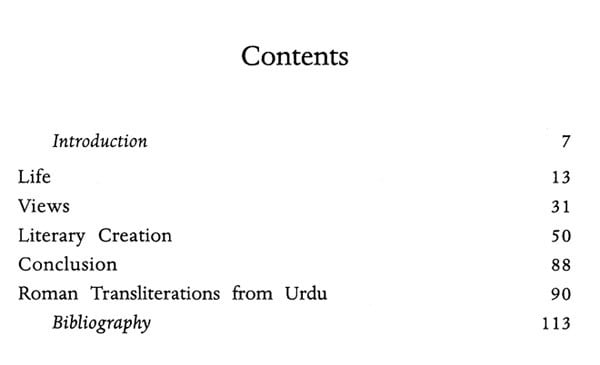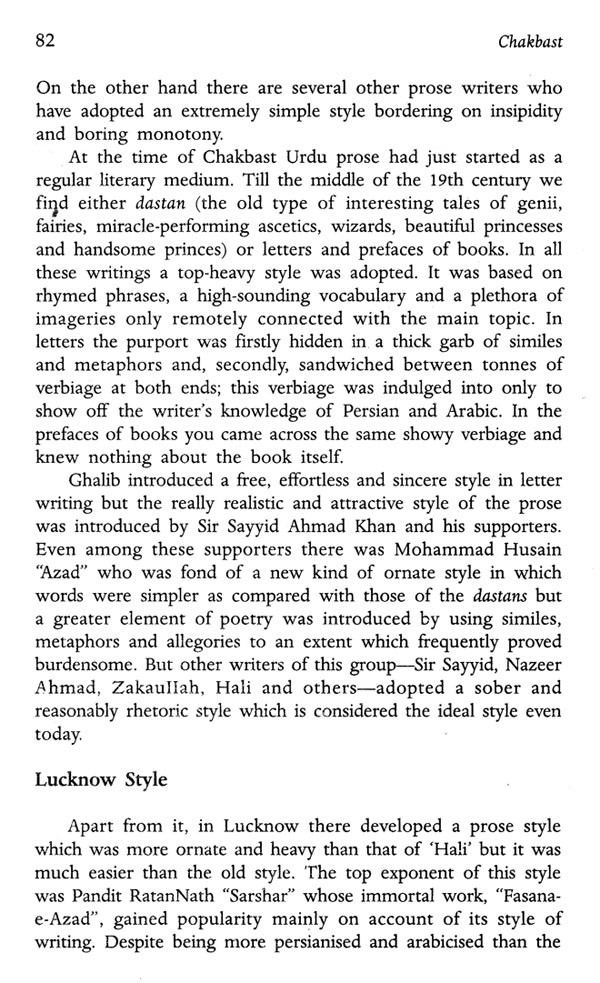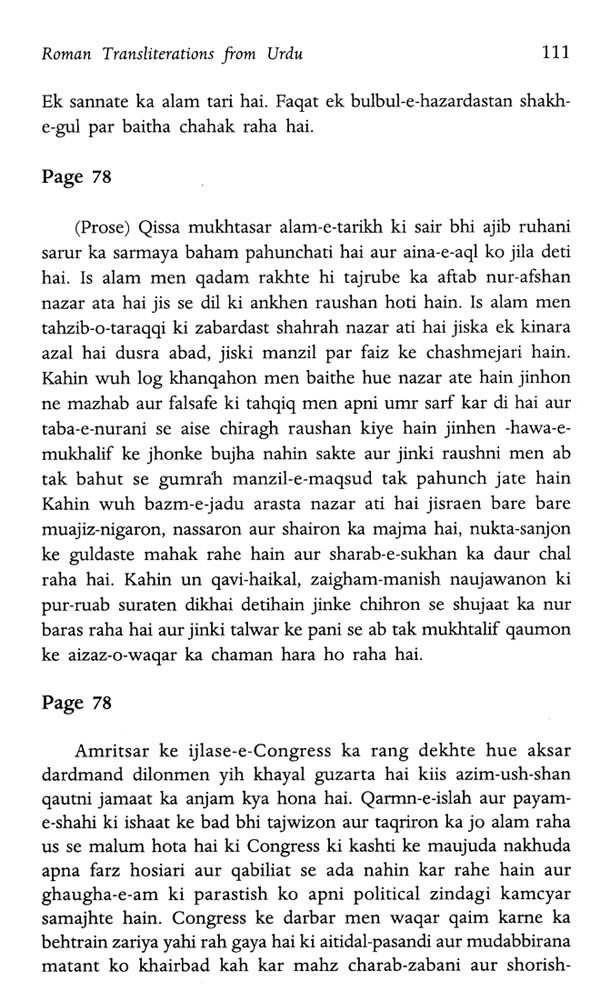
Chakbast- Makers of Indian Literature
Book Specification
| Item Code: | AZH073 |
| Author: | Saraswati Saran Kaif |
| Publisher: | SAHITYA AKADEMI, DELHI |
| Language: | ENGLISH |
| Edition: | 2017 |
| ISBN: | 9788126053254 |
| Pages: | 114 |
| Cover: | PAPERBACK |
| Other Details | 8.50x5.50 inches |
| Weight | 166 gm |
Book Description
Chakbast (1882-1926) was an Urdu poet. He was born in a Kashmiri Pandit family and settled in North India in the 15th century A.D. After the death of his father in 1887, the family moved to Lucknow. Chakbast was educated in Lucknow, and he became a successful lawyer. Chakbast made a thorough study of Urdu poetry. He defended Daya Shankar Kaul Nasim when it was suggested that he was not the author of the epic Gul Bakawali. He was actively involved in social and political affairs, and was a strong proponent of Home Rule and actively participated in the Home Rule Movement.
Saraswati Saran Kaif (1922-2007) was born at Mainpuri township in Etah district of Uttar Pradesh. Kaif was a poet par excellence of Urdu and Persian. He also had knowledge of Sanskrit, Punjabi, Arabic and French. His works include Lazzat-e-Karb, Khumar-e-geest both anthologies and Shaoor Lashaoor. He had published more than 31 books on various subjects in Urdu, English and Hindi.
Braj Narain Chakbast is generally known as a poet of patriotism. This is the truth but not the whole truth. The tradition of patriotism is fairly old in Urdu literature and limiting the poetry of Chakbast to patriotism is tantamount to throwing it in the archives of literature. His poetry contains many elements besides patriotism. Moreover, he is one of those few poets whose personality is directly reflected in their poetry. Hence for understanding Chakbast a four-fold background knowledge is essential the literary tradition of Urdu, the Lucknow culture, characteristics of Kashmiri Brahmins and the political and social milieu of the poet.
Every language, besides presenting a literary tradition, also reflects a certain culture. In the case of Urdu the cultural aspect is more prominent than even its literary aspect. The identity of Urdu consists in blending Iranian ebullience with Indian tolerance and acceptance. It is a strange blend but it has been made to perfection under the influence of Sufi saints and liberal-minded medieval monarchs who had great faith in sufism. It is also a fact that appreciation of this particular amalgamation of the values of self-sacrifice and softness required a higher plane of consciousness.
**Contents and Sample Pages**











